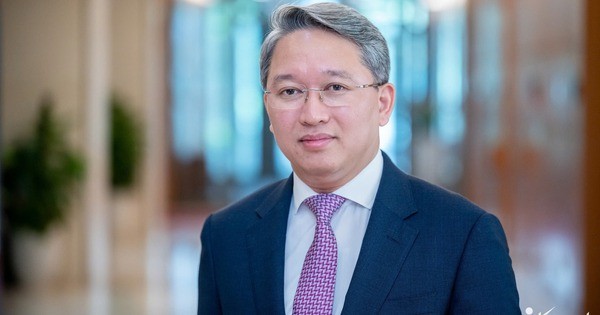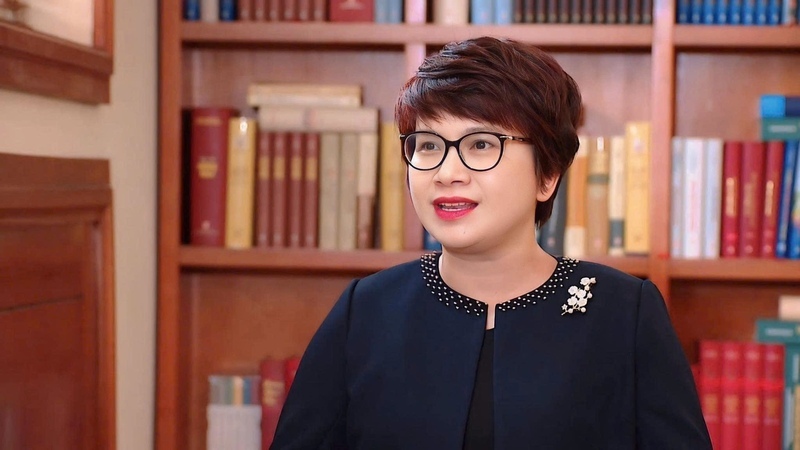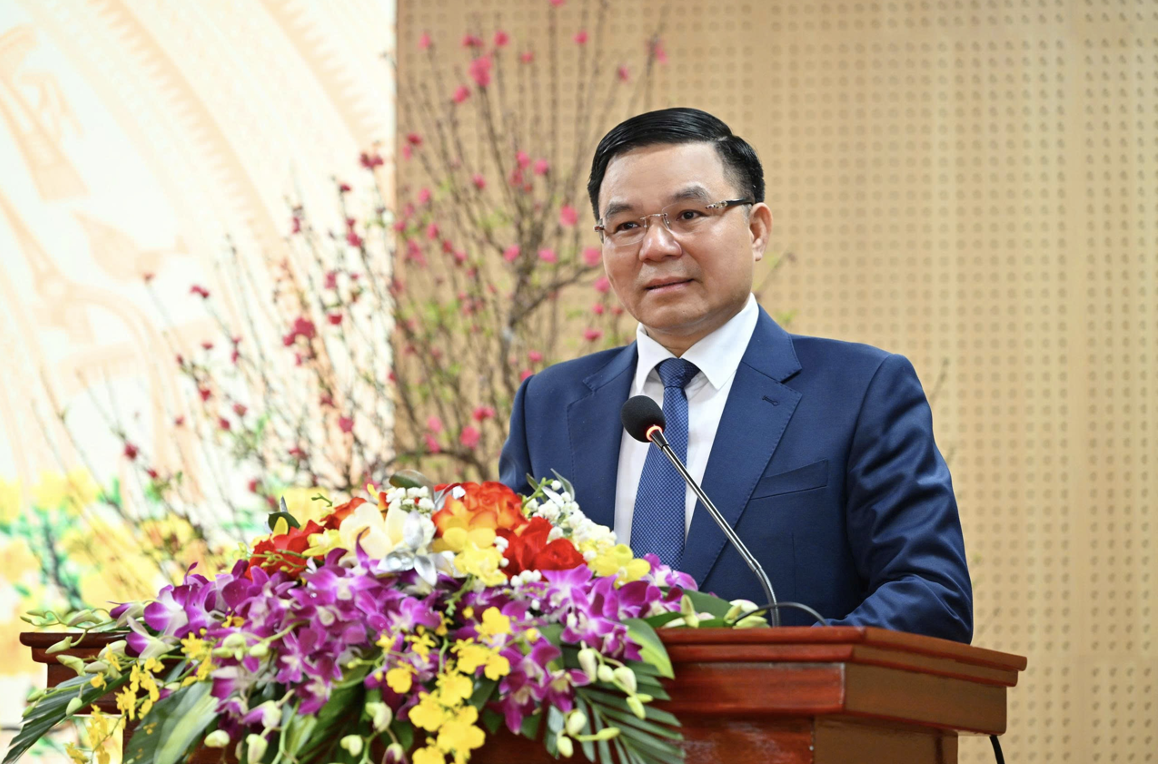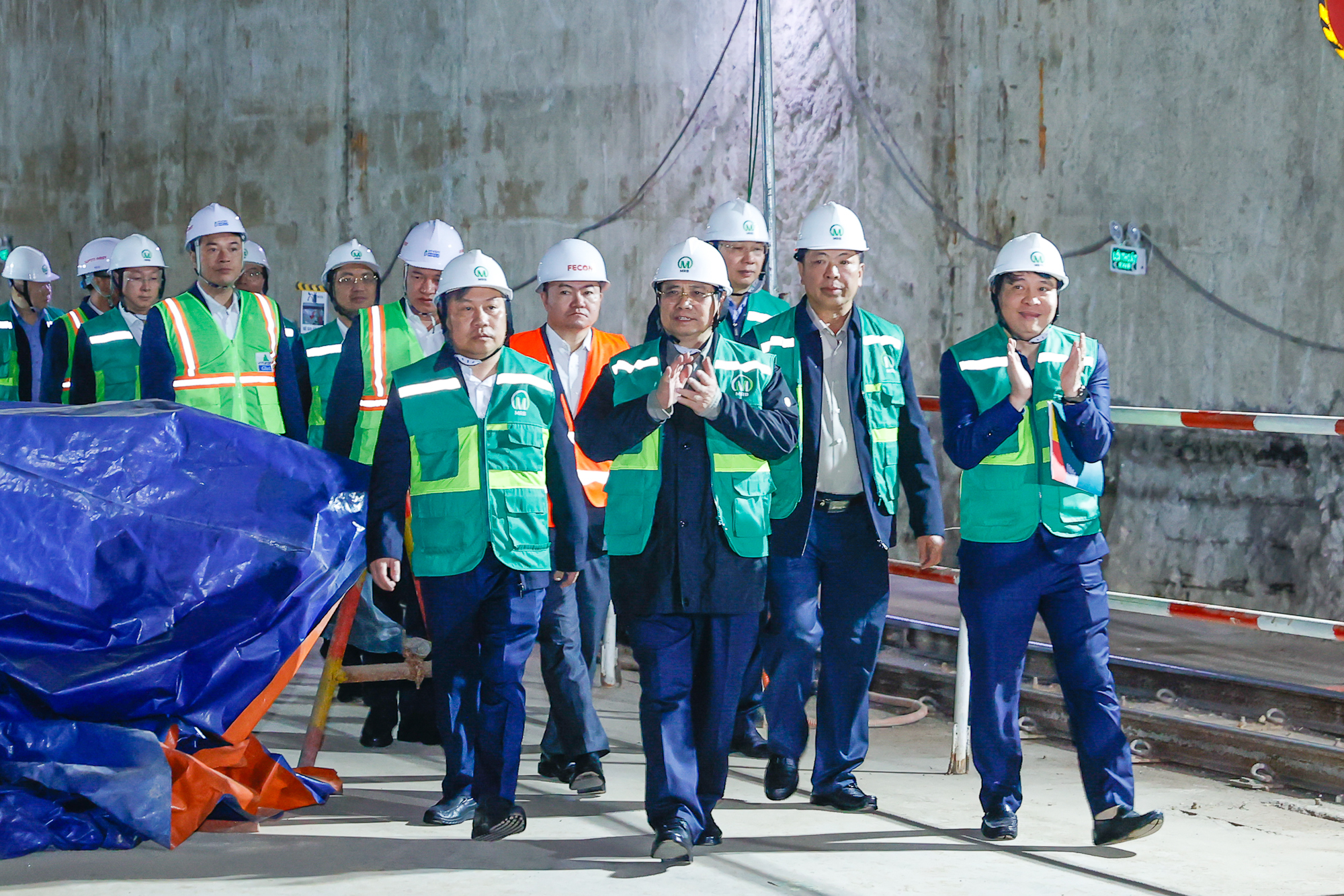
Vietnam’s fruit and vegetable exports to EU triple in four years
19:05 | 23/03/2025 20:40 | 23/02/2026Trade
The Government has recently submitted a consolidated report on the results of public consultations and feedback from various sectors and levels regarding the draft Resolution amending and supplementing certain articles of the 2013 Constitution to the Constitutional Amendment Drafting Committee.
On this occasion, Minister of Justice Nguyen Hai Ninh spoke with the press about key highlights from the recent public consultation process.
 |
| Minister of Justice Nguyen Hai Ninh. Photo: baochinhphu.vn |
Minister, after one month of public consultations on the draft Resolution to amend and supplement certain articles of the 2013 Constitution, how many opinions have been gathered?
Minister Ninh: Based on reports compiled from various agencies, ministries, sectors, and localities, as of June 5, 2025, more than 280 million opinions have been collected from agencies, organizations, and individuals regarding the draft Resolution. Notably, over 20 million citizens participated through the VNeID application. Among the topics, amendments to Article 9 of the 2013 Constitution concerning the Vietnam Fatherland Front and its member organizations attracted the most feedback.
On average, the approval rate for the draft Resolution reached 99.75%. This overwhelmingly positive response affirms that the amendments truly reflect the Party’s vision and the people’s will, demonstrating a high degree of consensus and unity across all sectors of society.
It is reported that many opinions focused on the organization of administrative units and local governments. What were the key findings, and what is the Government’s position?
Minister Ninh: The Government supports the proposed amendments to Article 110 of the Constitution, as set out in the draft Resolution, to institutionalize the Party’s policy on streamlining the political system in accordance with Resolution No. 60-NQ/TW. The use of generalized language, without listing specific administrative units, allows for flexibility in adjusting administrative models to meet evolving practical needs without necessitating future constitutional amendments. Accordingly, the National Assembly can make such adjustments through laws or resolutions as appropriate.
However, the Government proposes retaining Clause 2, Article 110 of the 2013 Constitution, which stipulates that "The establishment, dissolution, merger, division, and adjustment of the boundaries of administrative units must be subject to public consultation and conducted in accordance with procedures prescribed by law." This ensures the people's right to participate in decisions on matters that directly affect them.
Additionally, the Government recommends preserving the provision that allows members of local People’s Councils to question chairpersons of People’s Committees, other committee members, chief judges of local People’s Courts, chief procurators of People’s Procuracies, and heads of agencies under People’s Committees. This will form the basis for further specification in the Law on the Organization of Local Government and related legislation.
Furthermore, the Government supports adding a provision on the organization of local government in special administrative-economic zones. The draft Law on the Organization of Local Government would stipulate: "In special administrative-economic zones where it is not feasible to hold elections for People’s Councils, the provincial People’s Committee shall determine the organization, functions, and operations of the zone’s People’s Committee, its chairperson, and specialized agencies. The chairperson of the provincial People’s Committee will appoint, dismiss, reassign, commend, discipline, and remove the chairperson, vice chairpersons, and members of the zone’s People’s Committee."
Regarding other articles, the Government also supports amendments to Articles 111, 112, and 114 of the Constitution to clearly define local government as comprising the People’s Council and People’s Committee, avoiding the ambiguous term "local government level." This promotes clarity and consistency in the model of local governance. Certain provisions will also be reviewed and revised to align with the streamlined structure of the political system. The principles governing the organization and operations of provincial- and commune-level People’s Councils and People’s Committees will largely remain unchanged.
Based on the feedback, what is the Government’s position on the transitional provisions in the draft Resolution to ensure a smooth implementation process?
Minister Ninh: Regarding the effective date and transitional provisions (Article 2 of the draft Resolution), the Government agrees that the Resolution should take effect from July 1, 2025, providing a constitutional basis for implementing the Party’s policy as set forth in Resolution No. 60-NQ/TW of the 11th Plenum of the 13th Party Central Committee.
The Government supports a formal declaration to conclude the operation of district-level administrative units nationwide. It also agrees with the transitional provisions (Clause 3, Article 2), which provide legal grounds for appointing the leadership of People’s Councils, People’s Committees, and National Assembly delegations during the restructuring of provincial- and commune-level administrative units in 2025. These provisions will ensure smooth adjustments to the organizational structure of elected bodies for the 2021–2026 term, following the abolition of district-level administrative units, in line with the Politburo’s Conclusion No. 150-KL/TW dated April 14, 2025, on human resources arrangements in merged or newly established localities.
Additionally, the Government recommends that the official declaration on the conclusion of district-level administrative units should appropriately acknowledge their contributions to national development and defense.
The technical aspects of constitutional drafting have also attracted attention. What is the Government’s view on this matter?
Minister Ninh: On legislative drafting techniques, the Government believes it is necessary to further review the draft Resolution to ensure it accurately embodies the Party’s major policies while reflecting a renewed legislative mindset. The Constitution and laws should focus on core principles under the National Assembly’s jurisdiction, ensuring the Constitution’s stability and long-term relevance. Though this round of amendments is not a comprehensive revision, it must still adhere to modern, scientific drafting standards, meeting the demands of sustainable national development.
Through the consultation process, we noted that aside from the eight articles proposed for amendment, many agencies, ministries, and localities suggested additional areas for revision. However, given the limited timeframe, the Government agreed to focus on amendments related to the two-tier local government structure and the streamlining of the Vietnam Fatherland Front and mass organizations assigned by the Party and State. Other proposals will require further study and may be addressed at an appropriate future time.
Minister, what is your overall assessment of this public consultation process on the draft Resolution to amend the 2013 Constitution?
Minister Ninh: The consultation process was conducted seriously, openly, democratically, and scientifically by all ministries, sectors, and localities, in accordance with the timeline set out in Plan No. 05/KH-UBDTSĐBSHP of the Constitutional Amendment Drafting Committee and Government directives. The process strictly adhered to Party leadership, emphasized the responsibility of agency heads, and promoted inter-agency coordination.
A wide variety of consultation methods were employed. More than 288,000 meetings, conferences, seminars, and forums were held to gather feedback on the draft Resolution. Notably, by May 29, 2025, according to the Ministry of Public Security, over 20 million citizens had contributed their opinions via the VNeID platform.
The use of VNeID for public consultations enabled direct, efficient citizen participation, ensuring transparency and accessibility. Citizens could conveniently provide input anytime, anywhere, thereby contributing to policymaking and demonstrating the Party and State’s commitment to digital transformation and leveraging the national population database in key national initiatives.

19:05 | 23/03/2025 20:40 | 23/02/2026Trade

19:05 | 23/03/2025 20:38 | 23/02/2026Trade

19:05 | 23/03/2025 20:30 | 23/02/2026News and Events

19:05 | 23/03/2025 20:29 | 23/02/2026News and Events

19:05 | 23/03/2025 20:14 | 22/02/2026News and Events